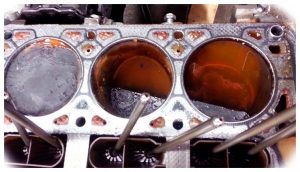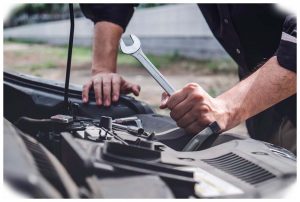An engine that won’t start can be extremely frustrating and may be caused by a starter lock up. This can occur when the starter motor has to work too hard to turn the engine over or if there is insufficient lubrication in the engine. This article will explain what a starter lock up is, discuss its causes, and outline ways to prevent it from happening again.
What is Starter Lock Up?
Starter lock up occurs when the motor cannot turn the engine over due to some kind of obstruction or resistance. It could be caused by something as simple as a lack of lubrication, but often it is more complex than that and requires professional attention. The most common cause of starter lock up is a failed timing belt or chain, which prevents the crankshaft from rotating and causes the starter motor to stall out. Other causes include an overheated engine, seized piston rings, or even an engine hydrolock which prevents fuel from entering the cylinders completely.
Causes of Starter Lock Up
Lack of Lubrication: In order for your vehicle’s engine to function properly, it needs adequate lubrication throughout all its components. If there isn’t enough oil in your car, the starter motor will be unable to turn the engine over and lock up as a result.
Overheating: A common cause of starter lock up is overheating, which can occur if your vehicle’s cooling system isn’t functioning correctly. This can lead to the engine becoming too hot, causing it to seize and preventing the starter motor from turning it over.
Failed Timing Belt or Chain: The timing belt or chain is responsible for keeping all of the moving parts in your engine in sync with one another. If it fails, it can cause serious damage to the engine, including preventing the crankshaft from rotating properly and causing a starter lock up.

Engine Hydrolock: Engine hydrolock occurs when fuel enters an air-free space in your vehicle’s cylinders, preventing them from compressing air and creating combustion. This can cause serious damage to an engine and prevent its components from moving freely, resulting in a starter lock up.
How To Prevent Starter Lock Up
Fortunately, there are several steps that you can take to prevent starter lock up from occurring. These include:
Regular Maintenance: Regular maintenance is essential for keeping your vehicle in good condition and preventing problems such as starter lock up from occurring. This includes changing the oil regularly and ensuring all of your engine’s components are well lubricated.
Checking Oil Levels: It’s important to check the oil levels in your vehicle regularly, as low levels can lead to a lack of lubrication and cause a starter lock up. You should also make sure that any new oil you add is of high quality, as this will help keep things running smoothly.
Keeping the Cooling System in Good Condition: The cooling system is responsible for keeping your engine cool, so it’s important to ensure it’s working properly. If you notice any problems or leaks, you should have them fixed immediately, as overheating can lead to serious damage and potentially cause a starter lock up.
Being Alert to Warning Signs: Many vehicles will give off warning signs if they’re at risk of a starter lock up, such as strange noises or a lack of power when trying to start the vehicle. If you notice any of these signs then it’s important to get your vehicle checked out by a professional as soon as possible.
Signs of Stater Lock Up
If you’re having trouble starting your car, then several signs could point towards starter lock up being the cause. These include a grinding noise coming from the engine, smoke from under the hood, or an inability to start the vehicle despite multiple attempts. If you experience any of these symptoms, it’s important to have your vehicle checked out as soon as possible to prevent further damage and avoid a costly repair bill.
How To Fix Starter Lock Up

Conclusion
Starter lock up can be extremely frustrating and have serious consequences if not addressed quickly. It’s, therefore, important to be aware of the causes and signs of a starter lock up and take steps to prevent it from happening in the first place. Regular maintenance, checking oil levels, and keeping the cooling system in good condition are all key ways to ensure that your engine runs smoothly and avoids any costly repairs down the line.


Add Comment